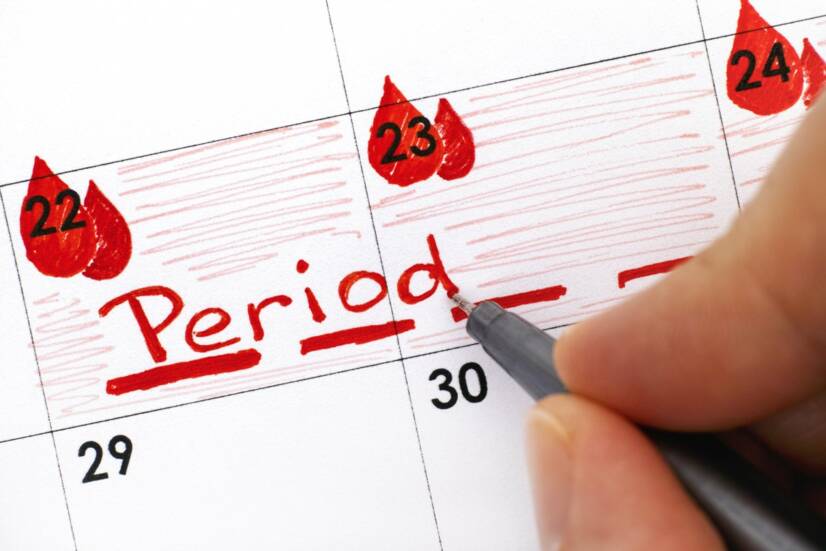- www.wikiskripta.eu - cyclical changes in the female body
- thebump.com
- mayoclinic.org
Week 1 of pregnancy: when does pregnancy begin?

Pregnancy starts counting from the first day of your last period.
Even if you haven't actually conceived yet, you're already counting.
Article content
An ideal pregnancy lasts 40 weeks (280 days), 10 lunar months or 9 calendar months.
Did you know...
Gynaecologists and obstetricians use lunar months exclusively to indicate the length of pregnancy.
One lunar month is made up of 28 days.
Pregnancy is thus divided into ten lunar months, which is approximately 9 calendar months.
For more information, see this article:
How long does pregnancy last? How many days, weeks and months?
Pregnancyby weeks: How does pregnancy and fetal development proceed?
The 40 weeks of pregnancy is a medical calculation, counted from the first day of the last menstrual period.
What does this mean?
In fact, for the first 2 weeks of pregnancy, you are not yet pregnant.
Fertilization itself does not occur until the time of ovulation.
Ovulation begins approximately 14 days after the first day of your last menstrual period, assuming your menstrual cycle is regular (28 days).
Menstrual cycle
The menstrual cycle is a monthly hormonal cycle that prepares a woman for potential pregnancy.
It is counted from the first day of menstruation to the first day of the next menstrual period.
The phases of the menstrual cycle
1st menstrual phase
- The first day of the menstrual cycle
- It is manifested by bleeding, which is caused by the shedding of the uterine lining - the endometrium
2. follicular phase
- occurs after the end of menstruation
- during this phase the egg matures
3. ovulatory phase
- rupture of the ovarian follicle and release of the mature egg into the fallopian tube
4. luteal phase
- if fertilization does not occur at the time of ovulation, the ovum decomposes
- during the following menstruation, it is expelled out of the vagina together with the uterine lining and blood
This whole process repeats itself month after month.
The menstrual calendar
Keeping a menstrual calendar is a great tool if you want to plan your pregnancy.
It can be used to mathematically calculate the time of your ovulation.
Ovulation occurs around the middle of your menstrual cycle.
Just make a note of the start date of your period each month.
Also make a note of accompanying symptoms, such as:
- premenstrual syndrome and its symptoms
- spotting before menstruation
- the length of menstrual bleeding
- soreness, etc.
Such a calendar will give you an overview of whether your cycle is regular or irregular.
If your cycles are regular, tracking them can help you know when you ovulate, when you have the best chance of getting pregnant and when to expect your next period to start.
If your cycles are not regular, tracking them can help you share any information and problems with your doctor.
The advantage of keeping a menstrual calendar is that you can always pinpoint the exact date your last period started.
Medically, this date (the start date of your last period) is the starting point for:
- calculating your gestational age, i.e. to determine which week of pregnancy you are currently in
- determining the date of delivery
How do you calculate your due date?
You add 7 days to the first day of your last period and subtract 3 months.
The resulting date is your due date.
You might also be interested in:
Why is menstruation late?
Menstrual cycle disorders
How does the menstrual calendar work?
Planned pregnancy
The advantage of having a planned pregnancy is that you can prepare your body for the change in your life right from the start.
Adjusting or changing your own lifestyle is important.
How to do it?
- Get rid of all unsuitable substances such as alcohol, cigarettes, caffeine
- all medications, prescription and over-the-counter, that you take should be assessed in relation to pregnancy
- go for healthier foods
- get plenty of exercise in the fresh air
- rest
- Eliminate stress
- start taking folic acid - it reduces the risk of miscarriage, premature birth and developmental diseases in the baby
- try to avoid X-rays, CT scans (computed tomography) or MRI scans (magnetic resonance imaging)
- if you have a chronic disease, it is advisable to have this disease stabilised
Start thinking and living like a pregnant woman now.
You might also be interested in:
How much weight to gain during pregnancy? What does it depend on and what to look out for?
No, false, possible or certain first signs of pregnancy. When do they appear?
Week 2of pregnancy: When does ovulation occur?
Interesting resources
Related










